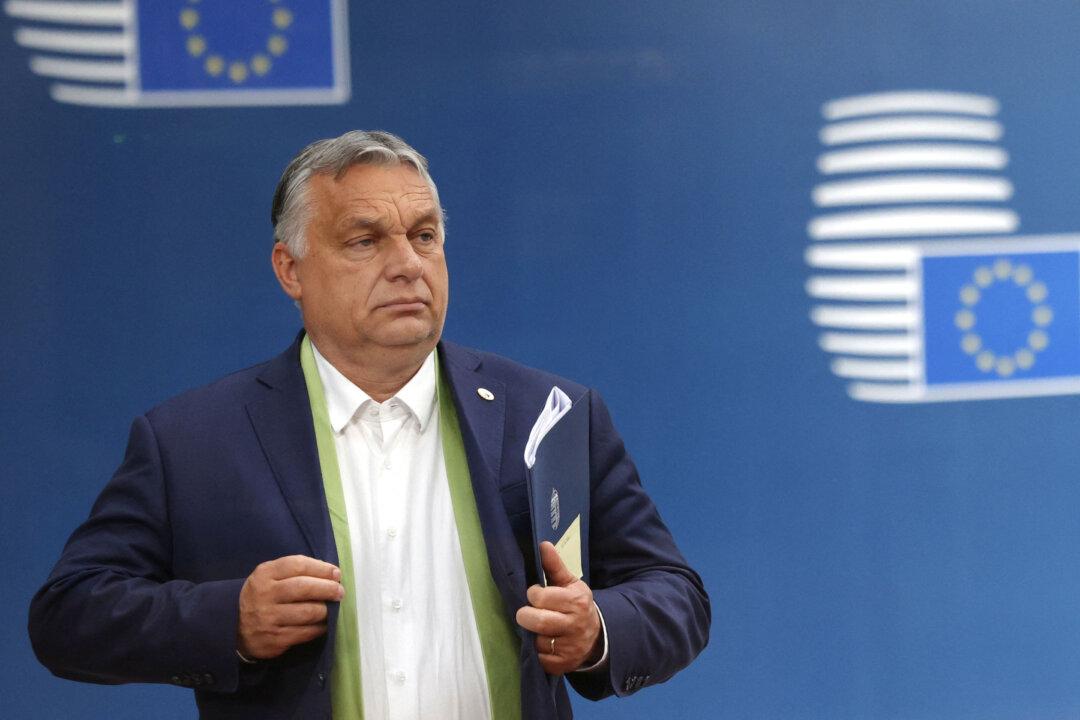The new “Patriots for Europe” right-wing alliance, founded by Hungarian conservative Prime Minister Viktor Orban, has met the threshold to form an official political group in the European Parliament, with Italy’s populist party led by Matteo Salvini the latest to join.
Patriots for Europe, which seeks to cut immigration and shift power from Brussels to national governments, on July 6 secured membership of the right-wing Danish People’s Party and the similarly leaning Flemish Vlaams Belang, meeting the required threshold. The minimum requirement to form a political group in the assembly is 23 members of the European Parliament from seven countries.





